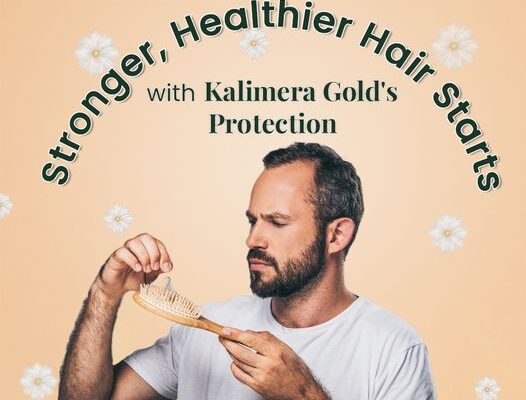
Introduction
Hair is often considered a crowning glory, and maintaining its health and vitality is a priority for many. However, factors like pollution, stress, and harsh chemical treatments can lead to dry and frizzy hair, making it difficult to manage. Herbal hair oils have long been used to nourish and condition hair, promoting growth and restoring its natural shine. In this blog, we’ll explore the importance of herbal hair oil for dry and frizzy hair, the role of essential oils in hair care, types of essential and carrier oils suggested for hair growth benefits, tips for using hair oils effectively and safely, understanding potential complications and risks of hair oils, and when to consult a doctor for hair loss.
Importance of Hair Oil for Growth and the Role of Essential Oils
Hair oiling is an age-old practice that offers numerous benefits for hair health. It helps moisturize the scalp, strengthens hair roots, prevents breakage, and promotes hair growth. Essential oils, such as rosemary, lavender, and peppermint, are known for their stimulating properties that can improve blood circulation to the scalp, promoting hair growth. They also have antibacterial and antifungal properties, which can help maintain a healthy scalp.
Types of Essential and Carrier Oils Suggested for Hair Growth Benefits
Several essential and carrier oils are recommended for promoting hair growth and improving hair health. Some popular choices include:
1. Coconut Oil: Known for its moisturizing properties, coconut oil penetrates the hair shaft, preventing protein loss and reducing damage.
2. Argan Oil: Rich in antioxidants and vitamins, argan oil nourishes the hair, improves elasticity, and adds shine.
3. Jojoba Oil: Similar to the natural oils produced by the scalp, jojoba oil helps regulate sebum production, keeping the scalp moisturized and promoting hair growth.
4. Almond Oil: Rich in vitamins and minerals, almond oil strengthens hair, reduces hair fall, and adds luster.
5. Castor Oil: Known for its thick consistency, castor oil promotes hair growth, moisturizes the scalp, and prevents split ends.
Suggested Tips for Using Hair Oils Effectively and Safely
To get the most out of your hair oiling routine, follow these tips:
1. Choose the Right Oil: Select an oil that suits your hair type and addresses your specific hair concerns.
2. Warm the Oil: Warm the oil slightly before applying it to improve its absorption.
3. Massage the Scalp: Gently massage the oil into your scalp to improve blood circulation and promote relaxation.
4. Leave it on Overnight: For best results, leave the oil on overnight and wash it off in the morning.
5. Use a Mild Shampoo: Wash your hair with a mild shampoo to remove the oil without stripping it of its natural oils.
Understanding Potential Complications and Risks of Hair Oils
While hair oils offer many benefits, they can also have potential complications and risks. Using too much oil or leaving it on for too long can lead to greasy hair and clogged pores. Some people may also experience allergic reactions to certain oils. It’s essential to patch-test any new oil before using it on your scalp.
When to Consult a Doctor for Hair Loss
If you’re experiencing excessive hair loss or other scalp issues, it’s essential to consult a dermatologist. They can help determine the underlying cause of your hair loss and recommend appropriate treatment options.
How Often Should You Oil Your Hair?
Determining how often to oil your hair depends on your hair type, texture, and scalp condition. For those with dry and frizzy hair, using the best herbal hair care oil can be particularly beneficial. Generally, it is recommended to oil your hair 1-2 times a week for dry hair. However, if your scalp tends to be oily, limit oiling to once a week or every other week.
When oiling your hair, focus on the scalp to nourish the roots and promote healthy hair growth. Massage the oil into your scalp and distribute it evenly through the lengths of your hair. Leave the oil on for at least 30 minutes to allow it to penetrate the hair shaft and moisturize your hair.
For best results, choose a herbal hair oil specifically formulated for dry and frizzy hair. Look for oils with ingredients like coconut oil, almond oil, and argan oil, known for their moisturizing and nourishing properties. Adjust the frequency of oiling based on how your hair responds, and enjoy the benefits of healthier, more manageable hair.
Conclusion
Incorporating the best herbal hair oil into your hair care routine can work wonders for dry and frizzy hair. These oils provide essential nutrients, strengthen hair roots, and promote growth, all while restoring shine and manageability. By understanding the benefits of essential oils, choosing the right carrier oils, and following proper application techniques, you can effectively nourish your hair and scalp. However, it’s crucial to be mindful of potential risks and complications, such as greasiness and allergic reactions, and to seek professional advice if experiencing excessive hair loss or scalp issues. With the right approach, herbal hair oils can help you achieve healthy, vibrant hair that shines with vitality.










